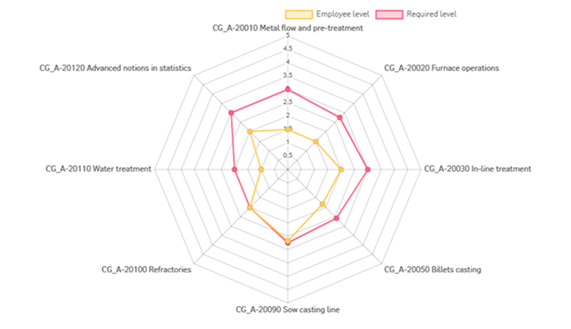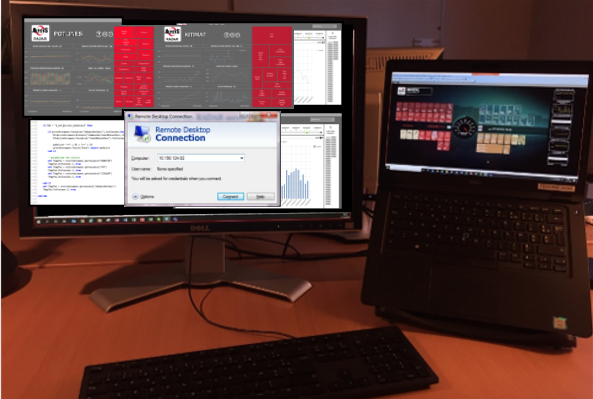This last format has been implemented into 2 proofs of concept with 2 approaches:
- Use of CAD drawings and implementation of one of the major operation scenarios (Metal Tapping) in a 3D imaginary potline. It has been designed for operators with the goal to be trained not only to the “best practices”, but also to the “how to react when facing critical incidents”. User feedback has led us to put this approached on stand-by because it needed a lot of expensive adaptations to each plant and the business case was not viable. It is now only used in training for technician and engineers (figure 1) and gives them the opportunity to really put themselves in the shoes of the operators and to better understand the dangers and difficulties of their work.
- Use of real potline shooting with a 3D camera and implement exercises to recognize electrical risks and be able to visualize the different potentials of the environment. It has been designed for all people who need to work in a potline either regularly or occasionally in order to work safely with regards to electrical hazards. User feedback has led us to continue to develop this approach, to adapt it to several plants, and to extend it to the visualization of situations presenting more risks.
Digital Platform
We are building a digital platform where all our learning materials is available for our trainees according 3 ways:
- Our skills assessment gives for each competency, the gap between the level of the participant and the required level (figure 2). We are rethinking the granularity of our learning materials so that the platform can provide the relevant learning materials adapted to each level to reach.
- We are working on a knowledge assessment which gives a more precise approach than the assessment of skills regarding specific task such as the use of an operation equipment or a process control system. Here too, the platform will provide the relevant learning materials adapted to each participant and their grade obtained in the knowledge assessment.
- We are working on the meta data of the description of our learning materials in the platform, so that the participant will be able to access any learning material with a traditional search by keywords.
Online training sessions
Due to the covid-19 we are adapting certain of our traditional face to face training to distant training. The use of modern interactive tools like touch screen or Klaxoon® and Kahoot makes the format attractive. In the area of ALPSYS RADAR training, we are able on one hand to share the trainer screen and on the other hand, all the trainee screens at the same time (figure 3).



